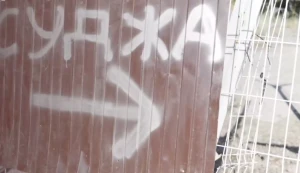
War in Ukraine spurs closer EU ties, says former Moldovan PM Gavrilița
Former Moldovan Prime Minister Natalia Gavrilița believes that the war in Ukraine has hastened her country's alignment with the European Union
She shared her views on Espreso.
Natalia Gavrilița believes that the European path was natural for both Ukraine and Moldova.
"If you examine our electoral program, we stated our intention to apply for EU membership by the end of our mandate in 2024, effectively 2025. We viewed seeking candidate status as a natural progression following our Association Agreement and the broader Association process. We consistently communicated with the EU about the importance of our neighbors not impeding our potential candidacy. The conflict in Ukraine has brought us closer to our European partners, underscoring the significance of Ukraine's victory for the entire European project. We didn't perceive this as a challenging shift or a change in direction," the former prime minister explains.
She notes that European partners have observed Ukraine's and Moldova's integration efforts.
Addressing the decrease in the Russian influence on Moldova, she comments: "It's akin to Ukraine in 2014; change takes time. Societal attitudes are shifting, albeit with some instability. We're witnessing progress in one direction followed by setbacks. Hybrid warfare remains a concern, with ongoing disinformation, propaganda, and cyber attacks. Our people are aware of Russian propaganda tactics, which foster disillusionment with democracy, European integration, and economic growth progress, as well as undermine confidence in democracy's effectiveness."
Gavrilița emphasized that Moldova still faces the challenge of countering Russian propaganda within its borders.
"We've only recently begun strengthening our ability to combat disinformation, following the full-scale invasion of Ukraine in 2022. Ideally, we should have started this process back in 2014, but unfortunately, there wasn't enough political will at that time. Currently, we're focused on enhancing our military resilience through non-lethal weapons, improved procedures, communication, and service delivery. We're also working on developing tools to counter disinformation and hybrid warfare tactics. We're eager to continue collaborating on these efforts," stated the former Prime Minister of Moldova.
Background
On November 8, 2023, the European Commission suggested initiating talks on Ukraine's EU membership.
On February 21, European Commission President Ursula von der Leyen announced that the negotiation framework for Ukraine's EU membership would be ready by early summer, following the European elections.
On February 22, President Zelenskyy stated Ukraine's aim to commence negotiations for EU membership by June.
On March 11, reports indicated that the European Commission would decide on presenting the negotiation framework for Ukraine's EU membership within three days.
On April 16, Ukrainian Deputy Prime Minister and Minister for European and Euro-Atlantic Integration Olha Stefanishyna provided forecasts regarding the approval of the negotiation framework for Ukraine's EU accession.
On June 15-16, Switzerland will host the Global Peace Summit at Ukraine's request.
On April 24, Volodymyr Zelenskyy mentioned intelligence reports suggesting Russia's specific plan to disrupt the Peace Summit.
On April 28, Zelenskyy expressed expectations for "results with the European Union" this year, emphasizing Ukraine's fulfillment of all necessary conditions for initiating EU membership negotiations.
- News












































